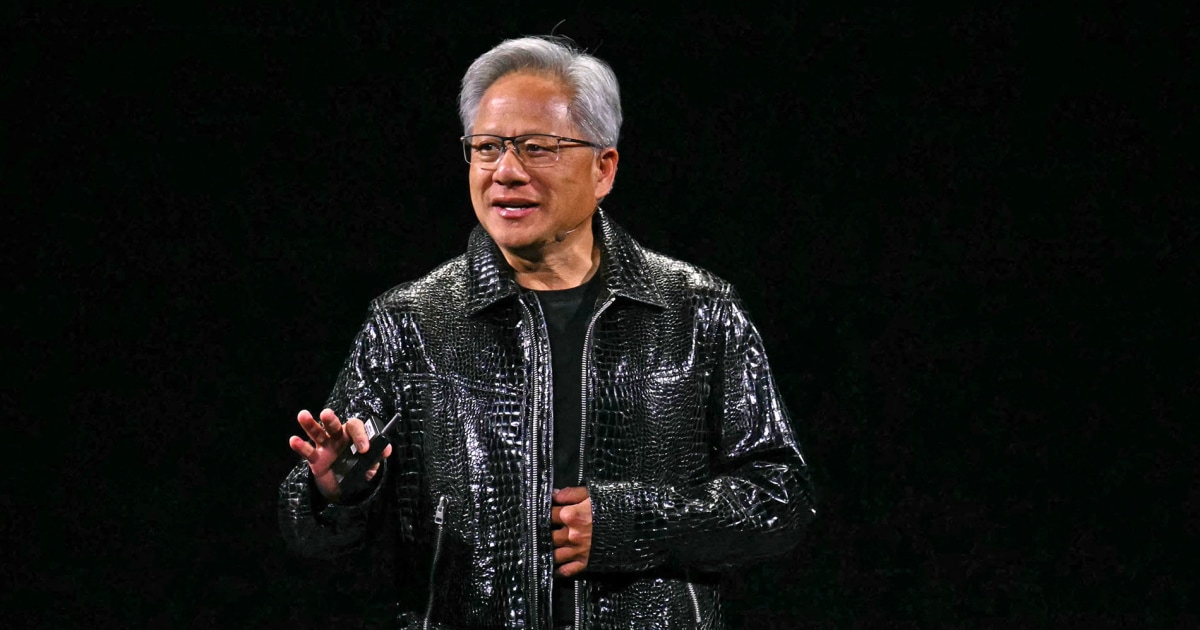Nvidia’s CEO on the AI Revolution: The Demand for 100x More Computation
In a recent statement that has sent ripples through the technology community, Nvidia’s CEO Jensen Huang highlighted a staggering demand for computational power driven by the rapid advancements in artificial intelligence (AI). Since the launch of ChatGPT, the landscape of AI has evolved dramatically, necessitating an increase in computational resources by a factor of 100. This bold assertion not only underscores the growing complexity of AI applications but also poses significant challenges and opportunities for the tech industry.
The Exponential Growth of AI Applications
Artificial intelligence is no longer a futuristic concept; it has become an integral part of various industries, from healthcare to finance, and even entertainment. The release of ChatGPT, a transformative language model, marked a pivotal moment in AI’s journey. This platform demonstrated the potential for AI to engage in human-like conversations, generate creative content, and even assist in professional tasks.
However, with this advancement comes a demand for computational power that is unprecedented. Huang’s remarks reflect the harsh reality that as AI applications become more sophisticated, they require exponentially more computational resources to function effectively. This demand is fueled by:
- Increased Data Processing: AI models are trained on massive datasets, and the larger the dataset, the more computational power is needed to analyze and learn from it.
- Complex Algorithms: As AI algorithms evolve, they become more intricate, necessitating sophisticated computational capabilities to run them efficiently.
- Real-Time Processing: Applications like autonomous vehicles and real-time language translation require instant data processing, creating further demands on computational resources.
The Role of Nvidia in the AI Landscape
Nvidia, a leader in graphics processing units (GPUs), has positioned itself at the forefront of the AI revolution. The company has developed hardware specifically tailored for AI workloads. Huang noted that the demand for 100 times more computation is not just a challenge; it is an opportunity for Nvidia to expand its influence in the AI sector.
Here are a few ways Nvidia is addressing this growing need:
- Advanced GPUs: Nvidia’s latest GPUs, such as the A100 and H100, are designed to handle the demands of AI training and inference, offering exceptional performance compared to traditional processors.
- AI Platforms: Nvidia has created comprehensive AI platforms, such as the Nvidia AI Enterprise, which provide businesses with the tools and frameworks necessary to develop and deploy AI solutions efficiently.
- Research Collaborations: By partnering with leading research institutions, Nvidia is at the cutting edge of AI research, enabling them to stay ahead of the computational demands of future AI models.
Investing in Future Technologies
As the demand for computation increases, Nvidia is not just resting on its laurels. The company has invested heavily in research and development to ensure that it can meet the future needs of AI. This includes:
- Quantum Computing: Nvidia is exploring quantum computing as a potential avenue for addressing the computational challenges posed by advanced AI applications.
- Edge Computing: With the rise of IoT devices, Nvidia is focusing on edge computing to bring AI processing closer to the data source, reducing latency and improving efficiency.
- Sustainable Practices: As computational power demands increase, so does energy consumption. Nvidia is committed to developing energy-efficient hardware that can handle the demands of AI while minimizing its environmental impact.
The Broader Implications of Increased Computation Demand
The requirement for 100x more computation is not only a technical challenge but also a societal one. As AI technologies become more powerful, they will profoundly impact various facets of our lives:
- Job Market Transformation: With advancements in AI, certain jobs may become obsolete, while new roles will emerge, requiring a workforce skilled in AI and data science.
- Ethical Considerations: The power of AI raises ethical questions about privacy, security, and decision-making, necessitating robust frameworks for governance and accountability.
- Accessibility and Equity: The rapid pace of AI development risks widening the gap between those who have access to advanced technologies and those who do not, highlighting the need for inclusive policies.
Looking Ahead: The Future of AI and Computation
As we look to the future, the AI landscape will continue to evolve. Huang’s statement about the demand for 100x more computation signals a critical moment in this journey. It emphasizes the need for collaboration between tech companies, researchers, and policymakers to address the challenges and harness the potential of AI effectively.
Furthermore, as AI systems become more integrated into our daily lives, it is essential to ensure that they are developed responsibly. This involves not only advancing computational capabilities but also prioritizing ethical considerations and societal impacts.
Conclusion: Embracing the AI Revolution
The call for 100 times more computation is a clarion call for the tech industry. It challenges us to innovate, adapt, and think critically about the future of AI. With leaders like Jensen Huang at the helm, and companies like Nvidia pushing the boundaries of technology, we are on the brink of an exciting era where the possibilities are limitless. By embracing this AI revolution, we can unlock new potential and create a future that is not only technologically advanced but also equitable and sustainable for all.
See more Future Tech Daily

